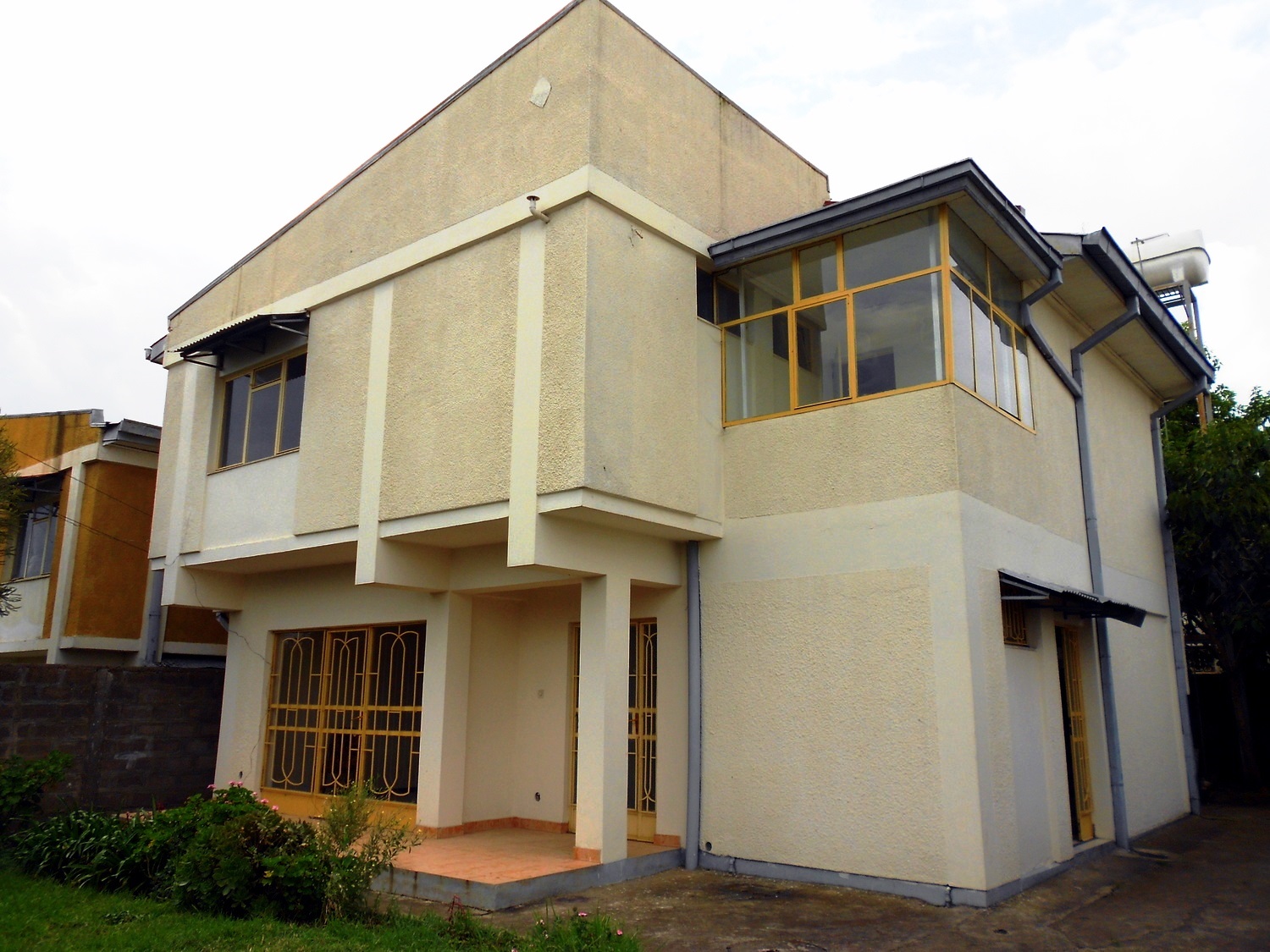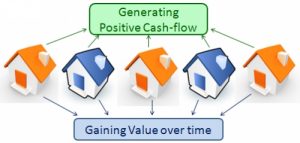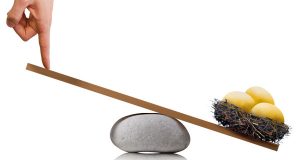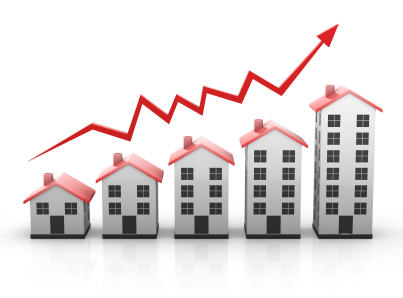Real estate in Addis has somewhat of a checkered history. And to some extent, we might expect it to in a rapidly developing city which is transforming itself into a modern metropolis before our very eyes. Especially given a highly dynamic urban planning department to say the least.
But one thing has remained true over the past 20+ years – real estate has been and remains today one of the best investments an individual can make in Ethiopia.
That this truism holds despite challenges such as developer insolvencies, poor quality construction, myriad problems in the bureaucracy and more, is testament to the enduring value that real estate investment has held in the minds of buyers through the years. That and the fact that prices have marched steadily upwards for decades. And it shows no signs of slowing down anytime soon.
Case in point: A standard G+1 villa at Ayat on a 300m2 plot, purchased for ETB 460,000 in 1996, will sell for ETB 8,500,000 – 10,500,000 today. That’s an average 2,000% increase in value! Yes, a significant portion of that value ‘increase’ is due to the declining purchasing power of the birr but even with that factored in, the house in question is worth 650% more due to real appreciation. What’s more, the rental income from such a house over 20 years would add another 150-200% to the net returns from it. That translates into an annualized return rate of 38% per annum over the life of the investment if the owner sold it today. Not even Ethiopia’s renowned bank shares can even approach those numbers over a 20 year period. Especially since their resale value is highly uncertain while there is no question of a property’s resale value thus far.

Such stellar and sustained performance could no doubt lead us to repeat a singular adage reserved for such occurrences:
The best time to buy real estate in Ethiopia was 20 years ago. The second best time is today!
Past performance is no guarantee of future returns, right? Technically yes, but a strong case can be made for strong returns from such an investment for the foreseeable future. This isn’t true all the time, everywhere of course. The number of foreclosures in the US during the Great Recession less than 10 years ago is proof positive of that.
But it is quite true in Ethiopia today. Whether there is a bubble in the Ethiopian market is a question we get all the time. The short answer is ‘No’ but the reasons why we make that assessment shall be covered in a separate article. For now, here’s why we think real estate remains one of the best investment options in the Ethiopian context today:
- Loss prevention
 The first and biggest reason to consider investment in real estate isn’t even related to making gains but in preventing losses. As an investor with disposable cash, your first job is to protect its value. And if your cash is sitting in the bank, it is losing value plain and simple. A deposit savings rate of 10% (on a one year note) and an annual inflation rate of 15.6% (as of February, 2018) means the difference between these numbers is how much your hard earned money is losing value on an annualized basis. And if there happens to be a massive policy based devaluation (PBD) like last October’s 15% surprise, then your losses just multiplied several fold. Taking last year as an example, a deposit of ETB 100,000 worth approximately $4,486 on Jan 1, 2017 would have left you with about ETB 110,000 worth $4,044 on Jan 1, 2018 – an almost 10% loss of ‘real’ value.
The first and biggest reason to consider investment in real estate isn’t even related to making gains but in preventing losses. As an investor with disposable cash, your first job is to protect its value. And if your cash is sitting in the bank, it is losing value plain and simple. A deposit savings rate of 10% (on a one year note) and an annual inflation rate of 15.6% (as of February, 2018) means the difference between these numbers is how much your hard earned money is losing value on an annualized basis. And if there happens to be a massive policy based devaluation (PBD) like last October’s 15% surprise, then your losses just multiplied several fold. Taking last year as an example, a deposit of ETB 100,000 worth approximately $4,486 on Jan 1, 2017 would have left you with about ETB 110,000 worth $4,044 on Jan 1, 2018 – an almost 10% loss of ‘real’ value.
In fact, we know that both inflation and PBDs are a basic fact of life in the Ethiopian economy. Thus one of the critical reasons for investing in real estate, is to hedge against both. Real estate prices adjust to PBDs in short order and generally outperform the inflation rate quite handily. It is not uncommon for real estate investment to be used as an inflation hedge globally too and indeed it has its proponents as a better performing one than gold (the gold standard of inflation hedges, no pun intended) even in developed economies.
- Positive cash flow
 In investment terms, the best possible combination is one that not only appreciates in value but also pays decent dividends. Although the dividend rate (in the form of rental income) on real estate can vary based on location, market segment and so forth), it will almost invariably deliver 2-4% against market prices of the asset (and possibly much more than that against the purchase price). A price that increases fast per annum. If yield is considered against cost (in real terms), the returns are even more compelling.
In investment terms, the best possible combination is one that not only appreciates in value but also pays decent dividends. Although the dividend rate (in the form of rental income) on real estate can vary based on location, market segment and so forth), it will almost invariably deliver 2-4% against market prices of the asset (and possibly much more than that against the purchase price). A price that increases fast per annum. If yield is considered against cost (in real terms), the returns are even more compelling.
- A hard asset that can be leveraged
 Just because you put your money into real estate doesn’t mean you’ve completely lost the buying power of cold, hard cash. In fact, a titled home can be used as collateral to secure a loan meaning you can retrieve at least some portion of what you paid for your home and use it as you see fit. Of course, you will pay interest on the loan but if we are to take the example of the home appreciation rate provided earlier, it would outperform the interest rate implying that you would essentially end up with a net positive interest rate instead.
Just because you put your money into real estate doesn’t mean you’ve completely lost the buying power of cold, hard cash. In fact, a titled home can be used as collateral to secure a loan meaning you can retrieve at least some portion of what you paid for your home and use it as you see fit. Of course, you will pay interest on the loan but if we are to take the example of the home appreciation rate provided earlier, it would outperform the interest rate implying that you would essentially end up with a net positive interest rate instead.
- Appreciating value
Not only does a real estate investment protect the value of your hard earned money, it actually enhances it. The example of the Ayat house provided above is a very good illustration of how buying a home can work in your favor in this regard. That residual value is also why real estate compares very favorably to buying bank shares or even other hard assets such as construction equipment and so forth. Neither of these examples will appreciate at anywhere near historical real estate appreciation here and in the case of the latter are much more likely to depreciate in real terms.
- You can always live in it!
Some may argue that the aforementioned competing investment alternative of buying shares may have previously represented a better choice. And there’s something to be said for being able to purchase shares with quite a bit less money than a home would call for. But there’s something you can’t do with bank shares in the event of unforeseen circumstances. And that’s live in it.
In fact, many economists have advanced arguments supporting real estate as a singularly universal means of wealth creation or building prosperity.
“Perhaps the most compelling argument for housing as a means of wealth accumulation”, argues Richard Green of the University of Southern California, “is that it gives households a default mechanism for savings.”
True, such arguments have generally been made within the context of much more developed real estate markets. But they are actually even stronger when applied to a rapidly developing economy like Ethiopia’s where economic growth is just one of the factors which has been driving demand for real estate higher for two decades. And can be expected to keep doing so for at least another two decades if not many more.
The good news for prospective buyers is that there are more choices in the Addis market than ever before. The flip side is that you also have to be even better at making the right choice than ever before. So do exercise due care but make your choice sooner rather than later. A few hundred percentage points of return on investment could hang in the balance.

